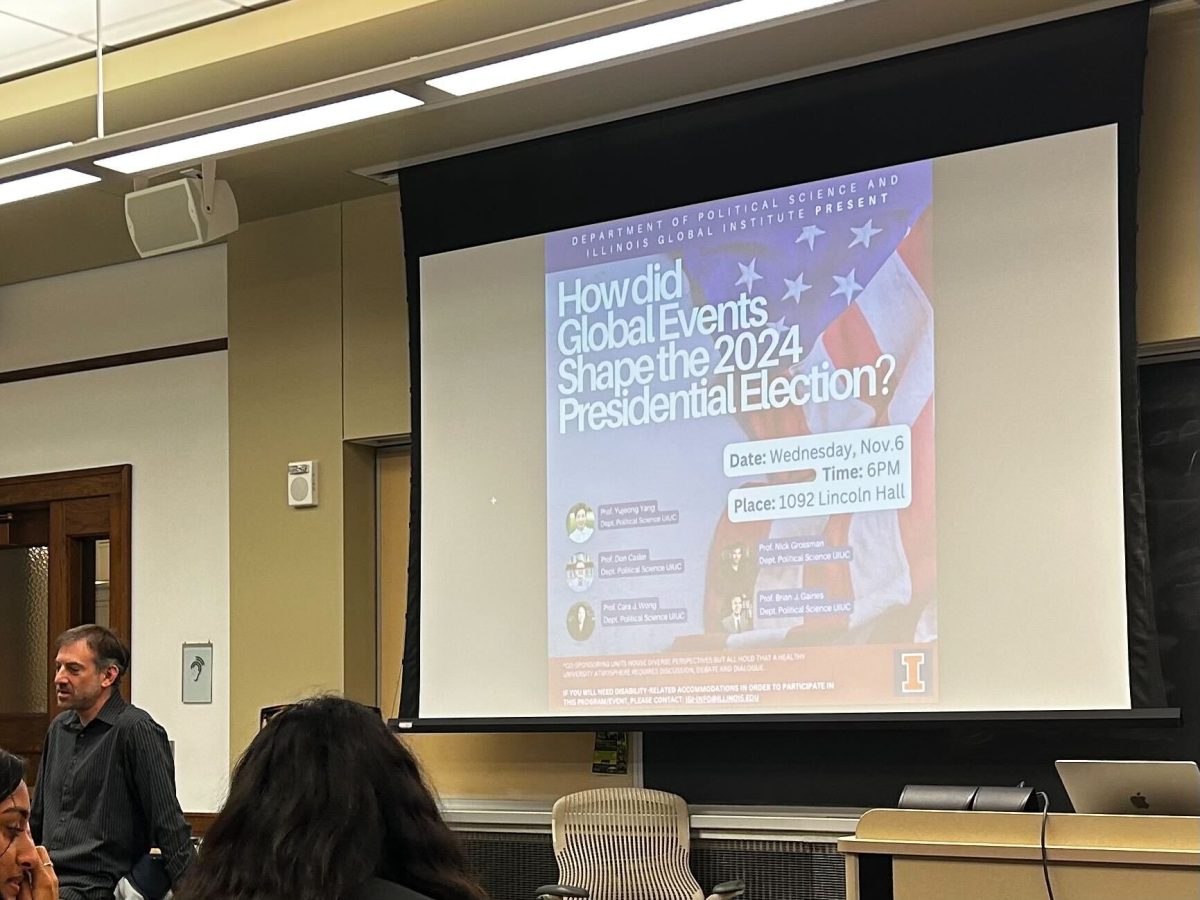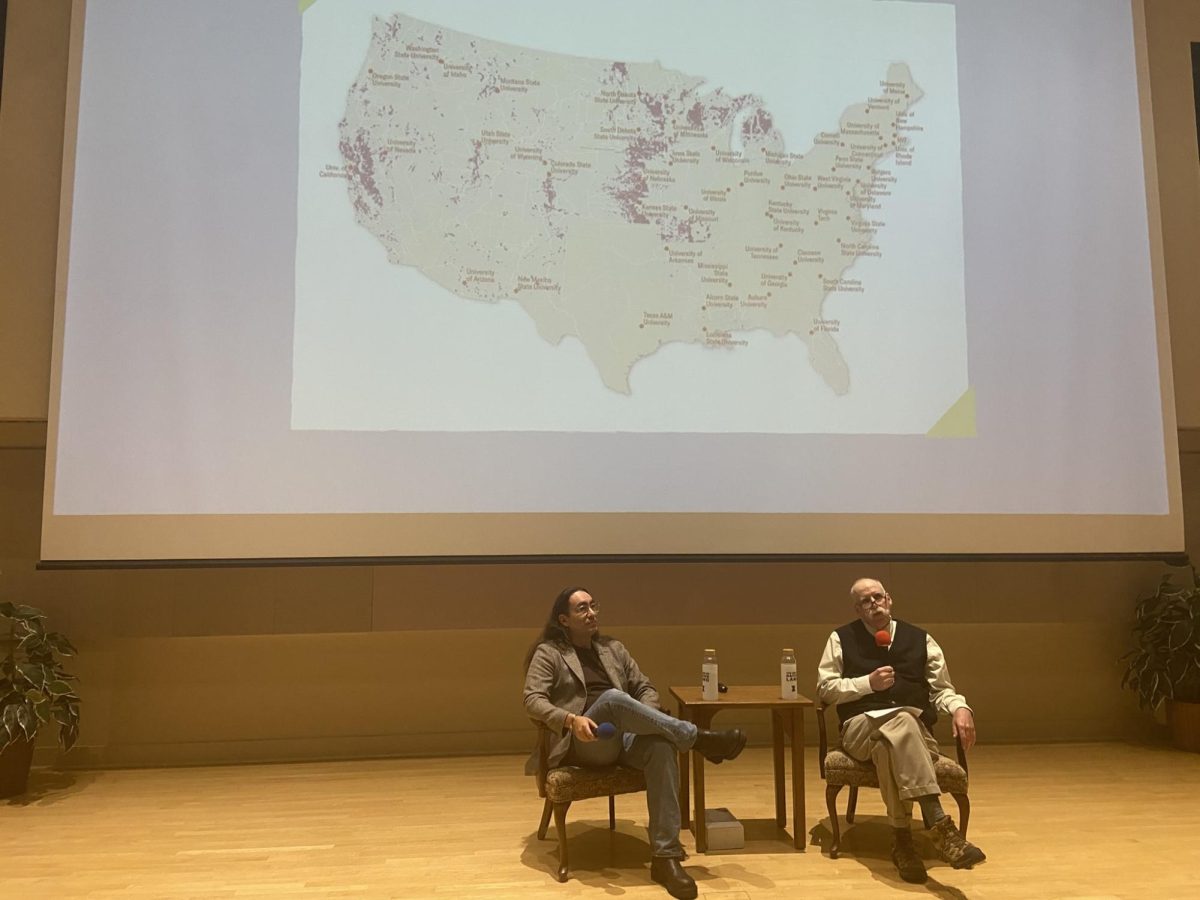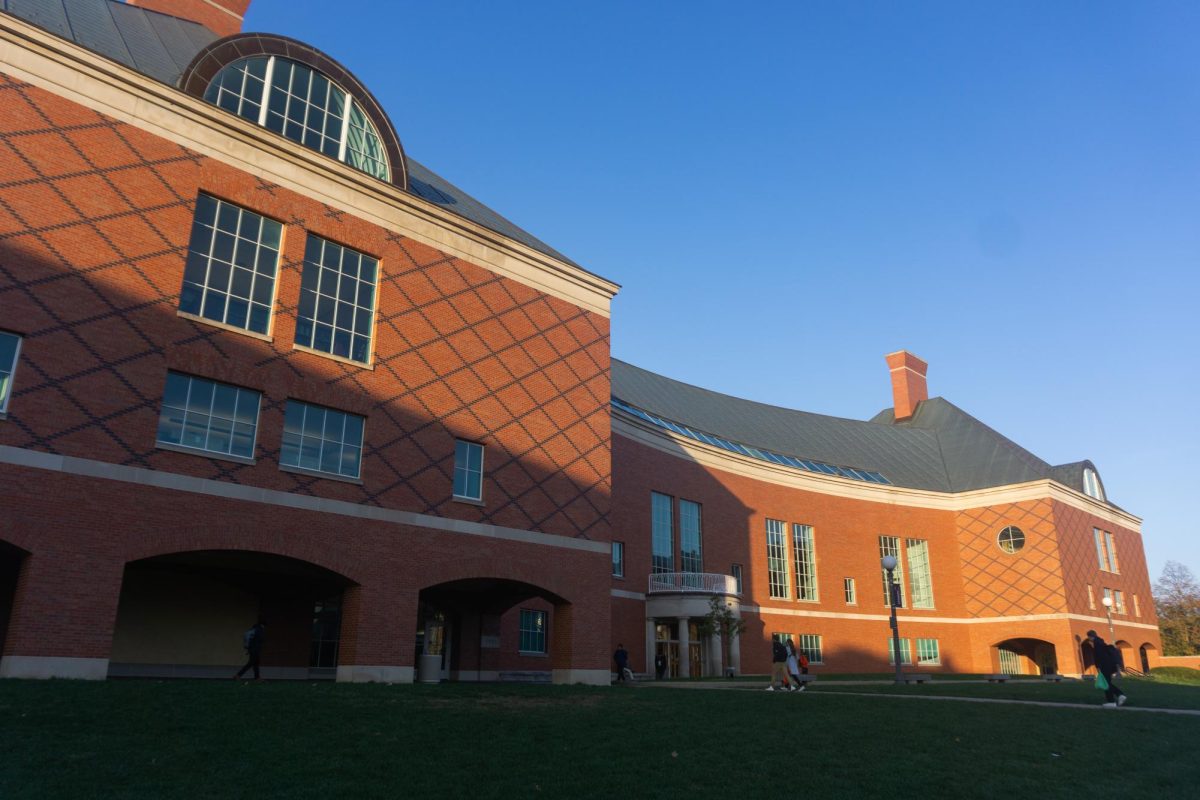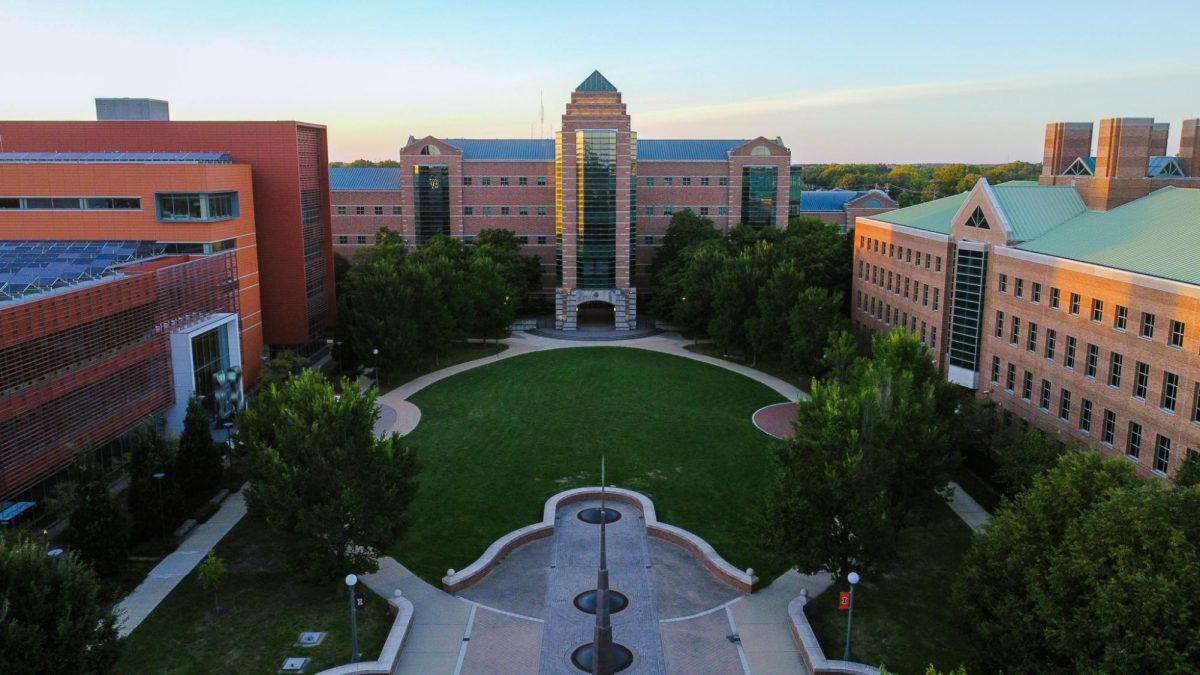In a talk titled “How did Global Events Shape the 2024 Presidential Election?” four University political science professors revealed that foreign policy did not, in fact, heavily shape the 2024 presidential election.
“I was shocked by the results of the election,” said Nathan Knoll, event attendee and senior in LAS. “I had professor Grossman as a professor before, and I was really interested to see what his perspective was, and I kind of wanted some reassurance.”
After the Associated Press called the race with Donald Trump as the president-elect, professors Don Casler, Yujeong Yang, Brian Gaines and Nicholas Grossman paneled in Lincoln Hall on Wednesday to discuss the factors leading to the results.
“We don’t have super strong evidence that global events affected how people voted,” Casler said at the end of his opening section of the talk.
Without disaggregating the exit polls, foreign affairs were arguably not salient to voters, Casler said. In exit poll data, only 4% of voters reported that foreign policy was the topic that mattered most in deciding their vote, compared to 32% for the economy and 34% for the state of U.S. democracy.
Get The Daily Illini in your inbox!
However, Casler noted when looking at specific topics within foreign policy, including immigration or each campaign’s relationship with Israel, these topics may have had a greater influence on how people voted on the margin as compared to foreign policy as a broad idea.
Yang’s segment of the talk focused on how U.S. and China relations impacted the election results and came to a similar conclusion as Casler’s: It probably didn’t influence voters too heavily.
But, as exit polls noted, the economy played a large role in determining how voters voted. Because of this, “maybe a lot of people will point the finger on the China issue as the main reason why (the) U.S. economy is suffering,” Yang said.
Both the Trump and Harris campaigns held similar stances on China, and Yang said, from the point of view of China, both candidates were unfavorable and “two bowls of poison.”
Both parties and candidates agree on the need for some sort of containment of China, Yang said, and because of this shared stance, voters had no meaningful decision to make, further reiterating the topic’s lack of significance in shaping the election.
Trump plans to impose up to 60% tariffs on Chinese goods, which will have tremendously harmful effects on the Chinese economy, Yang said. This tariff is Trump’s main tool in instigating a trade war with China, an example of his unilateral approach of containing China economically, which will also alienate other Asian allies.
The unilateral approach involves weakening U.S. ties to other Asian allies, eventually leading to what could be used for China’s benefit, Yang said. With the Trump administration so focused on containing China, China could, in turn, have more room to strengthen its relationships with other countries.
While the tariffs would have an extremely harmful impact on the Chinese economy, Yang mentioned, if anything, China would prefer Trump to win. It would be a more manageable threat, she said.
“China is also learning from Trump’s playbook — and China is mimicking, or to some extent, taking advantage of Trump’s playbook,” Yang said.
Gaines, the third speaker of the night, echoed Yang and Casler that this was not an election of global events but one of the economy. However, Gaines shared an anecdote that foreign involvement did affect national politics, although it didn’t start there.
Foreign Turkish involvement in the state of New York led to a reputation of a corrupt democratic party, Gaines said, ultimately leading to some influence on a national scale.
Now, Republicans are running off the corruption of their Democratic counterparts while seeking reelection and control of the House. Through this, Gaines described how international involvement affected national government by influencing local and state governments first.
Grossman delivered the final message of the talk, saying, “The general role of the United States … as the leader of the free world: I think that that is over, and I don’t think that that is something that once we break it, that we can get back.”
Specifically highlighting Russia’s invasion of Ukraine, Grossman noted he believes the U.S. will effectively switch sides, and ultimately, “Ukraine is screwed.” Similarly, Grossman expressed fear for NATO and mutual defense under Trump’s administration.
The U.S. has provided upward of $60 billion in military assistance since Russia’s invasion in 2022. Trump has, throughout his presidency and campaign, praised Russia and expressed affinity toward Russian President Vladimir Putin. He also claimed he would quickly end the war if elected.
Differing views scattered the crowd and panelists as the talk ended and a Q&A portion began. When asked what’s next for American democracy, Gaines said he wasn’t terribly worried; the country has bounced back from worse, he said regarding the Election of 1876.
Casler was a bit more skeptical, saying he was worried about Trump trying to remain in power after 2028 and believes Trump will attempt to.
But what happens in 2028? It’s a question none of the four panelists can definitively answer. The political landscape is always changing, and the morals learned from one election cannot be applied to all, Gaines said.
“I got a lot of information that I can use going forward, very helpful information, obviously,” said Luca Iasinschi, junior in LAS. “But to say that I’m not still worried is a bit of an understatement.”










